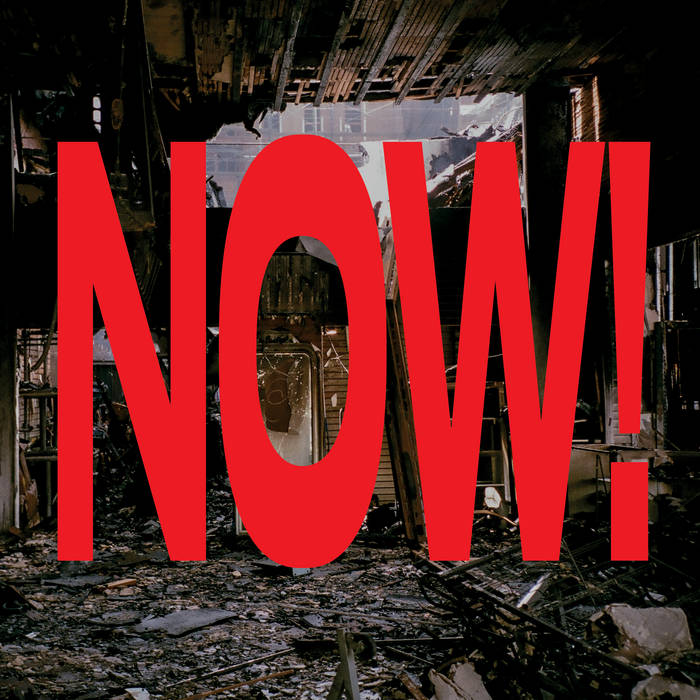A stalwart of Polish contemporary jazz, the name of reedist and composer Marek Pospieszalski has popped up on many of the scene’s most stimulating records in the past decade. He’s played with groups Power Of The Horns, Mazolewski González Quintet, and Marco Eneidi Streamin’ 4, among many others. While his recent releases as a bandleader explored the music of twentieth-century Polish composers; NOW! marks a return to a distinctly modern sound that brings together various strains of jazz, equally indebted to minimalism, contemporary classical, and the fiery tradition of free form.
On NOW!, these influences rush in together, squeezing through the door with the first notes of the album, as if unable to contain their excitement, creating a surge of sonic energy. Here, pianist Grzegorz Tarwid hammers out a cluster chord with such fervour that each repetition pushes it closer to resembling a hard electronic beat. At first, the rest of Pospieszalski’s octet are content to fall in behind him, with Max Mucha settling down into a throbbing double bass line and Szymon Mika strumming out equally insistent tremolos on acoustic guitar. Then the scale shifts and the brass section joins in with a glorious roar.
Piotr Chęcki and Pospieszalski envelop the rhythmic foundation with shimmering, melodic saxophones licks, while the sparkling, growling vibrato of Zoh Amba’s third tenor rushes through them like a ray of light peeking through stormy clouds. When the three saxophonists later fuse into an exalted harmony, the mood becomes reminiscent of the uplifting big band jazz euphoria conjured by the likes of Shibusashirazu Orchestra or Charlie Haden’s Liberation Music Orchestra. Within this soundscape, Amba’s tone maintains a special quality, simultaneously rugged and fluid, which should be fairly familiar to anyone who’s been even remotely interested in the creative music scene in recent years.
Considering how rich and varied Amba’s discography looks today, it’s easy to forget that the Tennessee born, New York based saxophonist released her debut album just over two years ago. The months and years since 2022’s O, Sun saw her spiritually-inflected free jazz releases expand to everything from cacophonous free improvisation with experimental noisemaker Wobbly and wild, Interstellar Space-evoking duets with drummer Chris Corsano to the song-oriented avant psych rock of Beings, featuring guitarist Steve Gunn, bassist/synthesist Shahzad Ismaily, and drummer Jim White. Rather than trying to find herself, she seems omnivorous in her musical explorations, unwilling to submit to just one style. It makes sense, then, that one of her first intercontinental collaborations would be with an equally polyglot musician like Pospieszalski.
On NOW!, Amba’s sound mutates again, shifting from sustained lines that linger to become textures and sputtering-but-melodic grunts that harken back to the albums she released as leader, especially the aforementioned O, Sun and Bhakti (with Tyshawn Sorey on drums, Matt Hollenberg on guitar, and Micah Thomas on piano). Despite operating with a fairly large, nine-piece group, Pospieszalski’s compositional touch and leadership are nimble, shying away from maximalism and collective skronk towards more restrained and airier forms that open enough space for Amba and the rest of his instrumentalists to breathe freely.
This is most evident on ‘Bios’, which opens with Tarwid’s piano keys on a solitary roll, before Tomasz Sroczyński touches them with grave sounding viola bows. Helped by barely there rhythms provided by Qba Janicki’s slight percussive touches and electronic effects, the cut grows into a sombre ballad, gradually joined by the rest of the ensemble. Meanwhile, Tomasz Dąbrowski’s trumpet and Pospieszalski’s hissing, static riddled tapes become increasingly important sources of textures on ambient-inclined, loosely structured pieces like ‘Anthropocene’ and ‘Reborn’. Ultimately, the pulsing, clattering ‘Never Again, Again And Again’ and the stumbling saxophone phrases, electric guitar riffs, and rising static of ‘Community; bring things back together, punctuating the album with a melancholy yet mutedly joyous note.


